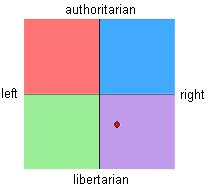The `wipeout' scenario just won't go away Vancouver Sun Vaughn Palmer
VICTORIA - It has now been two years since a consulting firm led by a disaffected former New Democratic Party cabinet minister first raised the ``wipeout'' scenario -- the possibility that the governing party could lose every seat in the coming provincial election.
At first the notion seemed unlikely, even un-British Columbian. The NDP, and its predecessor the Cooperative Commonwealth Federation, had been a presence in the legislature since 1933, never winning fewer than seven seats through 19 consecutive elections.
But the report from Barlee, Geoghegan and Associates -- Bill Barlee is the former cabinet minister, Mike Geoghegan is his former aide -- was based on a detailed analysis of voting patterns and opinion polls.
And since their study was first made public in the dying days of the Glen Clark administration, the wipeout scenario has been raised again and again.
The latest portent is an opinion poll commissioned by The Vancouver Sun and BCTV and conducted over this past weekend by Compas Inc.
The survey found that, among decided voters, 66 per cent were going to vote Liberal, just 17 per cent for the NDP. The gap of almost 50 points indicates the likelihood of a Liberal sweep as well as an NDP wipeout.
For a long time, the Opposition Liberals refused to entertain the wipeout scenario publicly, perhaps fearing they would jinx themselves.
Party leader Gordon Campbell routinely predicted that the NDP would begin moving up in the polls and into a position to win at least some seats in the next election.
But in a speech Saturday to a gathering of the party's candidates for the election, Mr. Campbell put aside all inhibitions. ``Every single one of you is going to be elected,'' he declared.
His ambition is not without foundation. True, a political party can win seats in the legislature with less than 20 per cent of the vote.
In the last provincial election, the Reform party won two seats with nine per cent, and six per cent provincewide was still enough to give one seat to Gordon Wilson's Progressive Democratic Alliance -- his own.
But those were special cases, where the votes were concentrated in a few pockets of support. For a more broadly based party like the NDP, a 17-per-cent share would most likely be spread too thinly to provide a winning margin in even one constituency.
Most analysts say the NDP needs to climb into the mid-20s in the popular vote before it can begin taking seats.
While I continue to expect the New Democrats will come back enough to win some seats in the election, I can't point to any evidence to show it is happening. Nor do the other parties pose much of threat to a Liberal sweep at this stage. The Greens were at seven per cent in the Compas survey, the Unity party had three per cent and the Marijuana party was at two per cent.
All of which raises the possibility of an Opposition-free legislature. I think that would be a bad thing because an effective Opposition is an important aspect of the British parliamentary system.
But it did happen in New Brunswick in 1987, when Frank McKenna's Liberals defeated Richard Hatfield's Conservatives 58-0. Premier McKenna tried to provide a semblance of Opposition. He allowed the leaders of the other recognized parties to appear before legislative committees and later to pose questions to cabinet ministers from a post at the entrance to the parliamentary chamber.
But that was no substitute for an elected Opposition inside the chamber, and at the next general election New Brunswickers provided the real thing.
It's amusing to speculate whether it would take the full four years to produce a full-fledged Opposition in B.C. in the event the Liberals were to take every seat. It takes only four seats to gain official party status in the B.C. legislature, with the attendant salaries, staff and privileges. And unlike New Bruns-wick, this province has a recall law.
If shut out in the next election, the New Democrats might try to organize the recall of a few Liberals and then re-establish themselves in the house via the resulting byelections. Alternatively, the Liberals might take matters into their own hands.
The party is a coalition, after all, and its 79 MLAs would not likely agree on every issue. Any four of them might break with their colleagues after a time, form a new party and -- presto! -- restyle themselves as the province's new but no-less-official Opposition.
vpalmer@direct.ca
Subscribe to:
Post Comments (Atom)







No comments:
Post a Comment